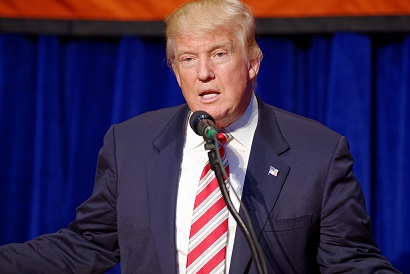

In an age when a single hacked Tweet can jeopardise burger sales and magnify political divide, cyber insurance takes on added importance.
Last week, fast food behemoth McDonald’s faced a public relations catastrophe when a Tweet went out from its official account criticizing American president Donald Trump.
The Tweet, which was briefly pinned to the top of the McDonald’s Twitter feed, also lamented the loss of former-president Barack Obama, and took aim at the size of the Trump’s hands.
The Tweet read: “@realDonaldTrump You are actually a disgusting excuse of a President and we would love to have @BarackObama back, also you have tiny hands”
Want the latest insurance industry news first? Sign up for our completely free newsletter service now.
McDonald’s was quick to rectify the situation, deleting the Tweet and issuing a statement that said their Twitter account had been “hacked by an external source.”
It is unclear if burger sales suffered, although plenty of Trump supporters responded on Twitter saying they would boycott the food giant. Meanwhile, other Twitter users supported the Tweet.
But for companies concerned with the threat of hackers, coverage to protect against cyber-attacks is available.
NAS Insurance vice president Mike Karbassi said protection against reputational harm was a relatively new insurance offering.
“I’d say within the past two or three years, it’s really started to gain some traction and popularity,” Karbassi said.
“I definitely think it rounds out a solid and robust network security and privacy liability policy. We try to address as many exposures as we can related to any hacking incidents.”
Within many multi-media policies, a “wrongful act” can cover any content disseminated by the insured, including social media, paper files, television, or other media.
Third-party coverage would include all forms defamation, slander or libel, while first-party reputational damage coverage would insure against a company suffering, for example, “a brand loss as a result of … an adverse media report”, Karbassi said, of his company’s cover.
“The adverse media report is actually any sort of report or communication of an actual or potential security or privacy breach,” he explained.
“[So] if word gets out that one of our insureds is hacked and as a result they suffer some reputational harm and, ultimately, income loss and profit loss, then our policy would respond.”
Although in the case of the McDonald’s Tweet hack, the company reported it as an outside attack, most advanced cyber policies also include “rogue employee coverage” – in case an employee goes “rogue” and harms the company’s reputation from within.
Karbassi said cyber and reputational harm cover was relatively new, but was growing.
Brokers selling cyber policies, he said, should “really sit down with their clients and explain to them the different exposures that exist as a result of a hacking incident.”
“The term cyber liability is an overly broad term,” he said. It’s not just hacking into databases that should be considered a threat, “most policies today cover paper files, and these types of social media hacks are covered as well.”
